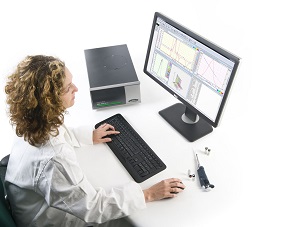The launch of the Viscotek SEC-MALS 20 brings new standards of performance and greater choice in gel permeation/size exclusion chromatography (GPC/SEC) and extends the Malvern Panalytical family of light scattering detectors for measuring the absolute molecular weight of proteins, macromolecules and polymers.

Malvern Panalytical’s Viscotek range now includes cost-effective options with unsurpassed performance for every type of light scattering detection – low angle, right angle and multi angle – allowing Malvern Panalytical to answer every GPC/SEC challenge with the most appropriate technology. With this extension to its detectors range, Malvern Panalytical becomes the only vendor to offer all light scattering options.
Molecular weight has an overriding influence on the physical, structural and chemical properties of polymer, protein and macromolecular species. Modern GPC/SEC systems use static light scattering (SLS) detectors for absolute molecular weight, rather than relying on unsuitable, potentially inaccurate external calibration methods. Malvern Panalytical’s new Viscotek SEC-MALS 20 is designed to measure absolute molecular weight for a range of macromolecular applications and to supply superior radius of gyration (Rg) measurements for molecules larger than 10-15 nm.
The new Viscotek SEC-MALS 20 has more detectors than any other commercially available MALS system. This increased level of detection, particularly at lower angles, gives the best possible data fit for the extrapolation of molecular weight and size. Consequently there are significant gains in accuracy, even at high molecular weights.
The incorporation of a vertical flow cell with radial optics, rather than the more conventional lateral flow cell, means increased sensitivity and accuracy for low angle detection. It also allows the use of a variety of different mobile phases without the need to alter the optical properties of the detector.
The Viscotek SEC-MALS 20 detector runs with Malvern Panalytical’s established OmniSEC software. It is compatible with any commercially available SEC instrument and is available both as a standalone unit or integrated within Malvern Panalytical’s multi-detector Viscotek GPC/SEC systems.
Multi-angle light scattering (MALS) detectors are widely used within biopharmaceutical research. In some instances this is because they provide the most accurate data for measuring the radius of gyration, and in others because they have become an accepted industry standard. With the launch of the Viscotek SEC-MALS 20, Malvern Panalytical has expanded its detector range to offer customers the broadest, unbiased choice of light scattering systems available.
More information on Viscotek SEC-MALS 20, including a range of white papers and applications notes, is available via Malvern Panalytical’s website at www.malvern.com/secmalslaunch